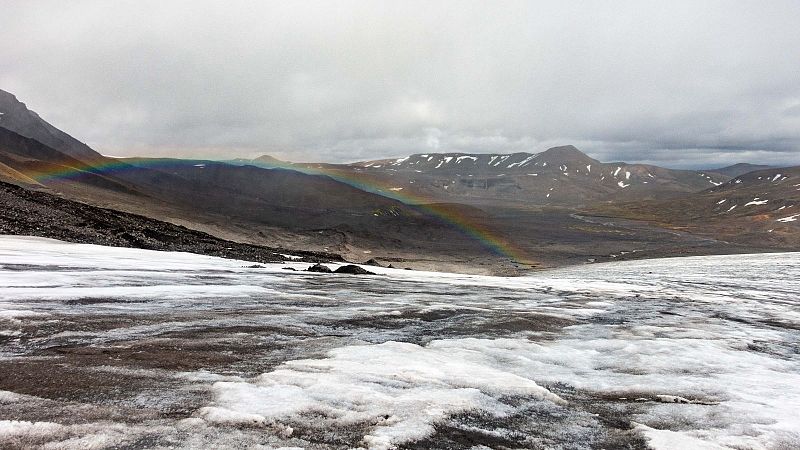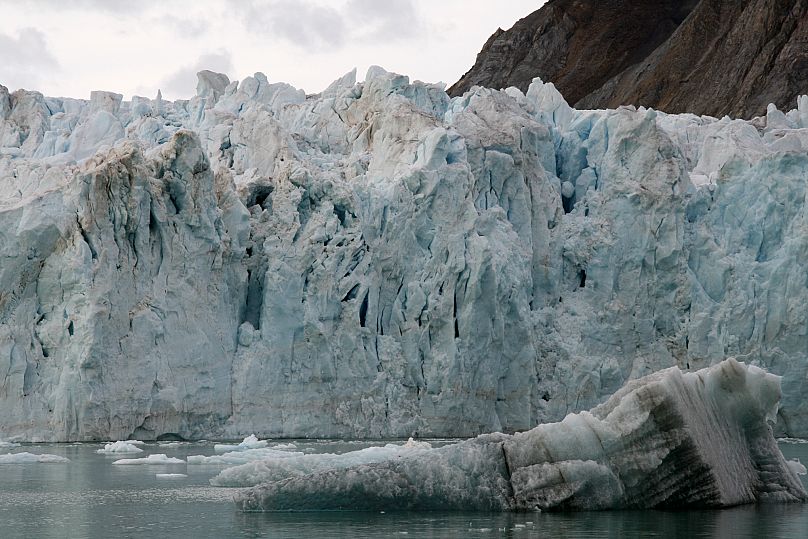
Mountain glaciers won’t recover for centuries if the world temporarily exceeds 1.5°C of global heating, new research shows.
It is the first study to simulate glacier change up to 2500 under ‘overshoot scenarios’ - where the planet surpasses the 1.5°C limit up to 3°C before cooling back down.
Since current climate policies put Earth on track for closer to 3°C of warming, the research led by the UK’s University of Bristol and Austria’s University of Innsbruck provides a timely glimpse into a possible future. And presents another urgent plea to correct the course we are on.
“It’s clear that such a world is far worse for glaciers than one where the 1.5°C limit is held,” says corresponding author Dr Fabien Maussion, Associate Professor in Polar Environmental Change at the University of Bristol.
“We aimed to discover whether glaciers can recover if the planet cools again. It’s a question many people ask - will glaciers regrow in our lifetime, or that of our children? Our findings indicate sadly not.”
Why 1.5°C makes a big difference for glaciers
2024 was the hottest year on record and the first calendar year to exceed the 1.5°C limit.
The Paris Agreement target of limiting global warming to 1.5°C above pre-industrial levels - beyond which climate disasters will escalate - is based on long-term averages, so we haven’t crossed the line just yet.
But it’s looking increasingly likely, with the UN weather agency warning last year that there is a near 50 per cent chance that average global temperatures between 2024-2028 could top 1.5°C.

To confront what this means for the world’s frozen rivers of ice, scientists simulated a strong overshoot scenario in which global warming continues rising to 3°C by around 2150, before falling back to 1.5°C by 2300 and stabilising.
Under these conditions, glaciers could lose up to 16 per cent more of their mass by 2200, compared to a world that never crosses the 1.5°C threshold, and 11 per cent more by 2500.
That’s on top of the 35 per cent already committed to melting even at 1.5°C.
The thawing of glacial ice since 2000 has already raised sea levels by almost 2 centimetres, making glacier melt the second biggest contributor to sea level rise after the expansion of water due to warming oceans.
Glaciers in the Alps would not recover until around 2500
“Our models show it would take many centuries, if not millennia, for the large polar glaciers to recover from a 3°C overshoot,” says Dr Lilian Schuster, lead author of the study published today in the journal Nature Climate Change, and a researcher at the University of Innsbruck.
The research excludes the world’s two polar ice sheets.
“For smaller glaciers such as those in the Alps, the Himalaya and the Tropical Andes, recovery won’t be seen by the next generations but is possible by 2500.”
The fluctuations of glacier meltwater in these mountain regions have a huge impact on downstream communities.
In basins where glaciers regrow after peak temperatures, glacier runoff reduces further than if they stabilise, a phenomenon the scientists call ‘trough water’.
“We found that roughly half of the basins we studied will experience some form of trough water beyond 2100,” explains Dr Lilian Schuster.
“It’s too early to say how much impact this will have, but our study is a first step toward understanding the many and complex consequences of climate overshoots for glacier-fed water systems and sea-level rise.”
“Overshooting 1.5°C, even temporarily, locks in glacier loss for centuries. Our study shows that much of this damage cannot simply be undone - even if temperatures later return to safer levels,” concludes Dr Maussion.
“The longer we delay emissions cuts, the more we burden future generations with irreversible change.”







